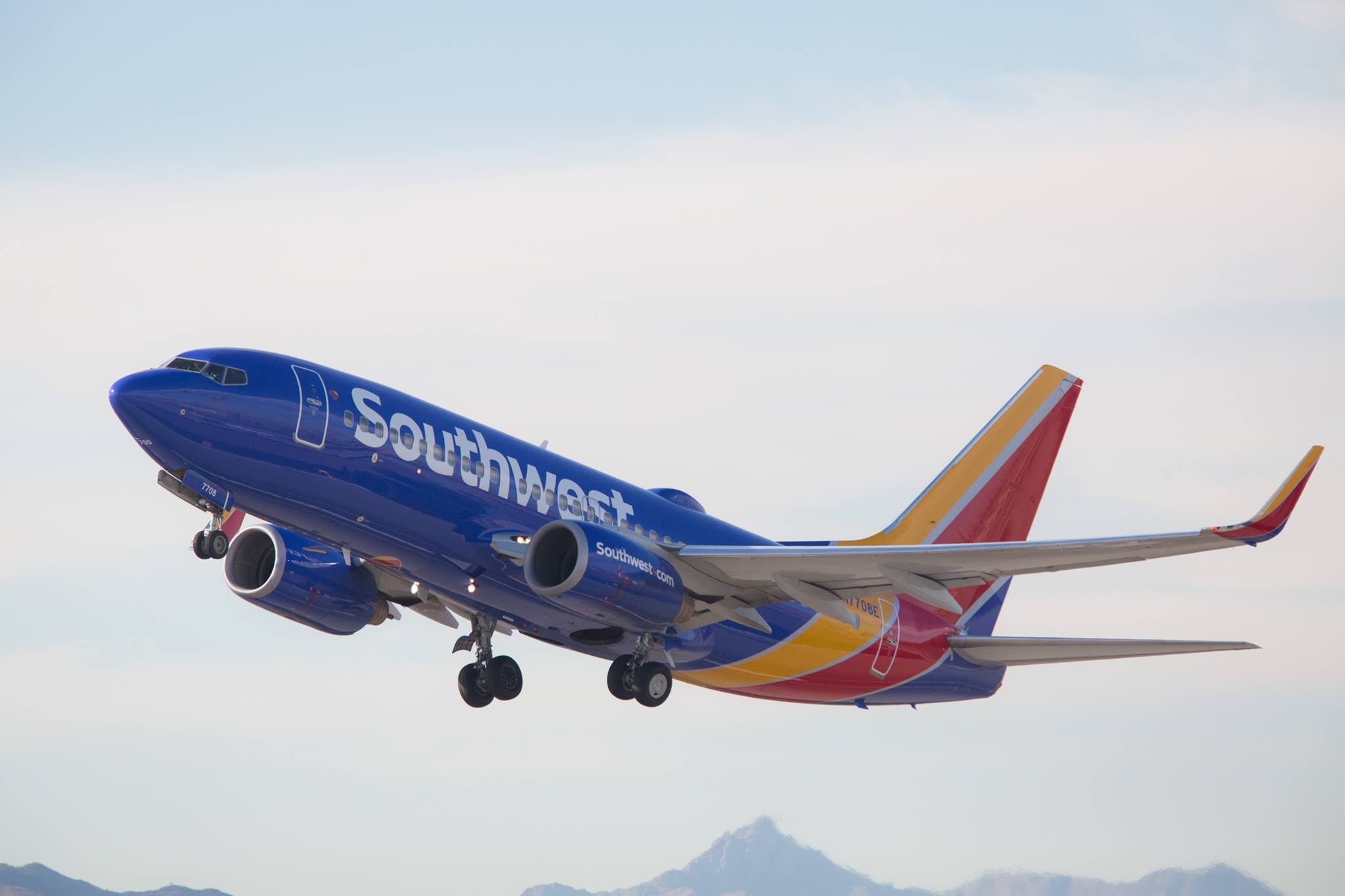Since a series of recent mergers, the U.S. airline industry has been dominated by four carriers: American Airlines (AAL 2.16%), Delta Air Lines (DAL 1.28%), Southwest Airlines (LUV +0.05%), and United Continental (UAL 2.18%). Earlier this month, reports leaked that the U.S. Department of Justice was investigating all four for collusion to restrain capacity growth and thus keep fares high.
The DOJ is only at the investigation stage -- no charges have been filed yet. Given that domestic airline capacity has been rising in 2015 at a rate not seen since before the Great Recession, while airfares have been falling, the investigation doesn't seem like a very serious threat to the airlines.

Delta is among the targets of a DOJ investigation and a class action lawsuit.
Nevertheless, American Airlines, Delta Air Lines, Southwest Airlines, and United Continental all got hit by a class action lawsuit last week. The lawsuit, filed on behalf of several Dallas-Fort Worth-area consumers, alleges that the four big airlines conspired to restrict capacity and raise fares.
Not a coincidence
Based on the timing of the lawsuit and the content of the allegations, it seems very unlikely that it is a coincidence that the suit was filed just a week after the DOJ investigation became public.
Indeed, there isn't much to distinguish the plaintiffs' claims from the subject of the DOJ investigation -- other than that the DOJ itself isn't rushing to judgment. Both the lawsuit and the investigation center on whether American, Delta, Southwest, and United "conspired to restrict capacity by limiting routes and the number of available seats in order to charge artificially high prices," as a press release announcing the class action antitrust lawsuit stated.
No evidence to support the claims
Not surprisingly, the airlines don't believe that they have broken the law. American Airlines CEO Doug Parker recently sent employees a letter asserting that the airline has done nothing wrong, according to the Los Angeles Times.

American Airlines CEO Doug Parker recently struck back at allegations of collusion. Image source: American Airlines
Given the acceleration in U.S. airline capacity growth in 2015 and the corresponding decline in fares, Parker's denial appears to be justified. But in the Dallas-Fort-Worth area -- the subject of the lawsuit -- the idea that the airlines are colluding is even more preposterous.
First, the Dallas-Fort Worth area has experienced rapid capacity growth since Dallas Love Field was opened to long-haul flights last fall. At the beginning of October 2014, Southwest Airlines operated 118 daily departures from Love Field. By next month, Southwest hopes to offer 180 daily departures there: a more than 50% increase. It is also bringing in larger planes and operating longer flights, enhancing its growth.
Meanwhile, American Airlines -- which operates a hub nearby at Dallas-Fort Worth International Airport -- has stated that it will not cut capacity on the routes where Southwest is growing. In fact, American Airlines President Scott Kirby told analysts in April that the carrier is more likely to put larger planes on those routes, as lower fares are stimulating travel demand.
Second, it is clear that all of this capacity growth is driving down airfares. Every airline with major operations in the Dallas-Fort Worth area has noted that a weak pricing environment there is hurting unit revenue. Simply put, Dallas-Fort Worth is one of the best places to get a great deal on air travel right now.

Growth by Southwest Airlines is driving down fares in the Dallas-Fort Worth area.
Third, even before the recent fare war, fliers in Dallas-Fort Worth had it pretty good. According to Department of Transportation data, the average domestic airfare at Dallas-Fort Worth International Airport declined 7.7% from 2000 to 2014. In real terms, the 2014 average airfare at DFW was 31.6% below the level of 2000.
Lies, damned lies, and statistics
If there is such clear-cut evidence demonstrating that airfares have been falling in the Dallas-Fort Worth area (especially in real terms), how did the plaintiffs' attorneys manage to compile a plausible complaint?
The answer hearkens back to an old saying associated with Mark Twain -- though not invented by him -- "There are three kinds of lies: lies, damned lies, and statistics." Based on the press release provided by the law firm behind this case, the argument that American, Delta, Southwest, and United colluded to raise fares is based on shoddy statistics.
For example, the press release alleges that "airlines paid at least $1.50 per gallon less for jet fuel in 2014 compared to 2013" and that fares should therefore have declined. And it's true that by the last week of 2014, the price of Gulf Coast jet fuel had dropped as low as $1.55 per gallon after rising as high as $3.30 per gallon in early 2013.
However, the fuel price drop didn't really accelerate until the last few months of 2014. Thus, for the full year, American Airlines paid just $0.17 per gallon less than in 2013.
The press release also claims that airline fares rose an inflation-adjusted 13% from 2009 to 2014. It contrasts this to the recent drop in jet fuel prices. Yet it conveniently fails to mention that the price of jet fuel approximately doubled between early 2009 and early 2014.
It's unlikely that the Department of Justice will marshal enough evidence to create problems for American Airlines, Delta Air Lines, Southwest Airlines, and United Continental through its investigation. And investors can be even more confident that this new Dallas-focused class action lawsuit will go nowhere. Airline competition is stronger than ever in the Dallas-Fort Worth area.









